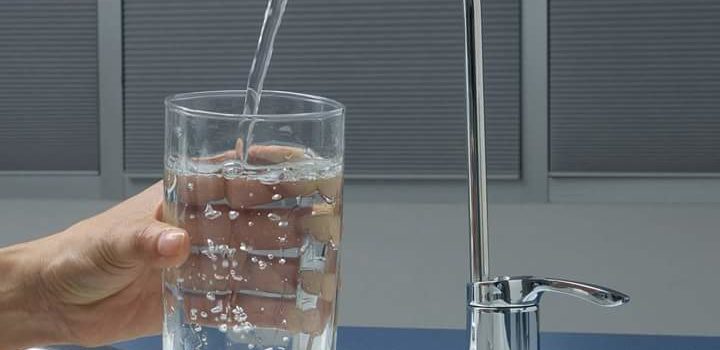
South Kern Sol, Commentary, Gerardo Tinoco Jr.
A few weeks ago, a Bakersfield television report on the carcinogenic water contaminant 1,2,3-trichloropropane (1,2,3-TCP) caught many local residents by surprise. The report shared details about the prevalence of this drinking water contaminant and highlighted that some wells exceeded the state’s public health goal for 1,2,3-TCP by 200 times. Many people were rightfully confused and concerned.
As a lifelong Arvin resident and the South Kern Community Programs Coordinator for the Community Water Center (CWC), I have been working alongside community members to set a health-protective drinking water standard for 1,2,3-TCP. A strong standard is needed so that we can start regulating this dangerous contaminant in our drinking water. This month, residents have opportunities to learn more about 1,2,3-TCP and get involved in advocacy to protect our communities from this chemical.
Right after the television report came out, I started getting calls from concerned residents in Kern County asking what 1,2,3-TCP is, where it comes from, and what we can do about it. In a sense, they had just taken an important step toward addressing this issue, which is to educate themselves.
Before talking about what we can do to address 1,2,3-TCP, I want to share a brief history of this contaminant to help South Kern residents understand why a colorless, odorless and tasteless manmade chemical is in our drinking water. Classified as a carcinogen in 1999, 1,2,3-TCP nevertheless remains unregulated by the State of California which lacks a drinking water standard. 1,2,3-TCP was a pesticide ingredient that got into the Central Valley’s groundwater through extensive pesticide use prior to the 1980s.
What makes this particularly frustrating is that 1,2,3-TCP was only a byproduct in these pesticides. Since it was not an active ingredient, 1,2,3-TCP served no purpose, making this a horrible example of corporate irresponsibility and negligence. Two corporations – Shell and Dow – decided to leave this byproduct in their pesticides rather than properly disposing of it as a hazardous waste. Their choice to do so has left South Kern residents and hundreds of thousands of Californians exposed to a chemical known to cause irritation and burning of the skin, nose, eyes, and throat – and cancer. Kern County now has the unfortunate honor of being the county with the greatest number of 1,2,3-TCP detections in California, with 17 contaminated community water systems, including those serving Arvin, Bakersfield, and Greenfield.
And yes, drinking the water once or twice won’t kill you. Hazardous effects come from prolonged exposure to this contaminant. Many people live in Kern County their whole lives. Their roots are here. Unfortunately those roots are grounded in contaminated water. Still, no one should have to choose between staying in their hometown and living somewhere else with safe water.
So how can we prevent people from having to make that decision? Now that we know this contaminant is here, what can we do?
First, you can use bottled water for drinking, cooking and washing dishes. Unfortunately, unlike with Arsenic, there are no 1,2,3-TCP filters certified for in-home use because manufactures, who make filters for Arsenic, can’t make filters because California lacks a drinking water standard for this contaminant. In order for individuals, families and communities to deal with 1,2,3-TCP, we need the State Water Board to set a health-protective drinking water standard, or Maximum Contaminant Level (MCL), for this contaminant.
The second thing you can do is to get involved in the process of setting that MCL. The State Water Resources Control Board will be hosting a workshop on July 26th in Bakersfield to hear residents’ input and concerns. This is our opportunity to be our own advocates and let our voices be heard. In preparation for that meeting, the Community Water Center will be hosting two community meetings on July 21st and 22nd in Arvin and Greenfield, respectively, so that you can learn more about this contaminant and the process of establishing an MCL.
Setting the MCL will put in motion the series of events that will finally rid us of this contaminant. With an MCL, filters can be certified to treat 1,2,3-TCP, water providers can be required to treat their water systems, and the corporations responsible for this contaminant can be held accountable for their negligence.
We need to let those in power know that we do not want harmful chemicals in our water, and that we deserve an MCL that prioritizes our health. The Community Water Center and our partners are urging the state to set the MCL at 5 parts per trillion to protect community health. If we want to achieve this goal, I need my neighbors to join me at these upcoming meetings so that we can send a strong message to the State Water Board. So whether you’re from Arvin, Bakersfield, Delano, or anywhere in Kern County, I encourage you to come out, learn more, and let your voices be heard to ensure everyone has safe water.
More information:
CWC Community Workshop
Thursday, July 21, 6:00 p.m.
FIELD Office
141 N. A Street
Arvin, CA 93203
CWC Community Workshop
Friday, July 22, 6:00 p.m.
Rexland Community Center
325 Fairview Rd.
Bakersfield, California 93307
State Water Board Public Workshop
Tuesday, July 26, 2016 – 1:00 p.m. – 3:30 p.m.
Kern County Public Health Department, Mojave/Sierra Room
1800 Mt. Vernon Avenue, Bakersfield 93306
Learn more and join CWC’s action team here or give me a call at (661) 345-9976.